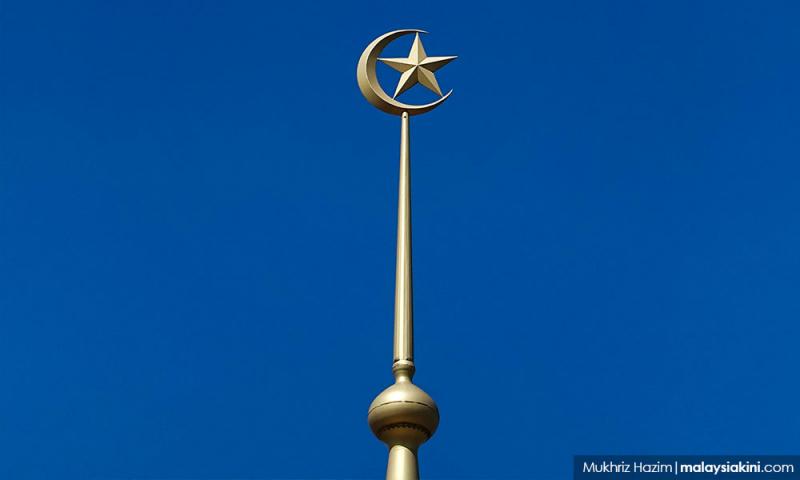LETTER | Humility, discursive Islam, and a culture of ambiguity
LETTER | In his Friday khutba (sermon) during Maulud Nabi (observance of the Prophet’s birthday) last month, our young guest Imam Hassan referred to Prophet Muhammad, as the personification of the Quran. As such, Muslims are to emulate him.
Our Imam then went on, as is traditional in a khutba, to recite the relevant Quranic verse. His mellifluous voice together with his exquisite tajweed made for a poignant recitation that captivated the congregation, reducing even the children to silence in wonderment and acoustic pleasure.
Exquisite wonderment because it was a rare display of the unique intrinsic aural beauty of our Quran.
He then proceeded with his sermon in English with his crisp American-born accent, “Approximately translated, that verse means . . . .”
Such humility! Rarely heard in religious presentations. After all, translations are at best approximations and we must be reminded of this, always. Nonetheless, to have someone openly acknowledge it was refreshing, more so as it was a rare departure from the norm.
Listen to the glut of Malaysian sermons and Islamic discourses on radio and television as well as on social media. The smug certitude of the speakers is matched only by their intellectual arrogance.
“And it means this . . . ,” they bellow after reciting a particular hadith or Quranic verse. No room for discussion or to even consider alternate interpretations.
That has not always been the case. Back in the old village of my youth, when the Imam expounded on matters religious he would invariably end it with, “Wa Allahhu A‘alam!” Only Allah knows the truth. Any exposition is at best an approximation.
That Arabic phrase underpins much more. Expression of humility aside, it implies that we must continue seeking knowledge so we can do better the next time.
I am reminded of a comparable advice early in my brief research career. “A good piece of research,” my supervisor counselled me, “is when you have uncovered more questions than what you have attempted to answer.”
Khaled el Fadl of the Los Angeles-based Usuli Institute distinguishes between authoritative versus authoritarian Islamic discourses. Much of what goes on today is of the latter variety.
Notre Dame University’s Ebrahim Moosa, echoing Talal Asad earlier, calls for a more discursive Islam.
The difference of opinion is mercy for my community, our Prophet Muhammad reminded us. It is unfortunate and a great missed opportunity that many of the discussions on hadith today relate to their authenticity, or rather lack of it.
An impossible task, considering those were utterances from over 1,400 years ago. More productive would be to relate a particular hadith to the Quran and from there extrapolate its relevance to and lessons for contemporary challenges.
Hadith are sayings attributed to the Prophet. That is worth emphasising. There is a world of difference between what someone (prophet or otherwise) said and what others said he said.
The late Kassim Ahmad in his book ‘Hadis: Satu Penilian Semula (Hadith: A Re-Evaluation)’ related the classic beginner psychology class exercise of a whisper being transmitted orally that would end up far radically different in words, tone, as well as meaning by the time the last student heard it.
Ancient scholars dealt with what was euphemistically called “problematic” hadith by avoiding labelling them as outright false.
Remember, Wa Allahhu A‘alam! Rather, they used such terms as sahih (sound), hasan (good), or da’if (weak). Similarly with the chain of narrators, as with mutawatir (continuous chain), mashur (famous), and ahad (isolated).
How wise of them to avoid such divisive and polarising terms as right and wrong, or true and false! This is what the German scholar Thomas Bauer referred to as the culture of ambiguity of early Islam. Now that is worthy of our emulation.
I once viewed a panel discussion between Mu’nim Sirry, the Indonesian scholar at Notre Dame, and the local Mohd Asri Zainul Abidin (Dr Maza) where the latter rudely walked out over some disagreement with what the former had said.
Both Dr Maza (he goes only by his initials, aping our esteemed Pendita Za’ba,) and Mu’nim were traditionally trained until they went for their doctorates; Mu’nim to the intellectually rigorous University of Chicago, Maza to a provincial British one.
The former is comfortable and thrives in a culture of ambiguity; the latter demands and seeks certitude, as he sees it.
It is a sad commentary that the likes of Dr Maza are the norm in Malaysia today. As Islam is an integral part of Malay culture, that is also the blight of our culture.
With today’s state imprimatur on Islam, that is also a curse on the nation as well as our faith. Friday sermons in Malaysia today are not the independent thoughts of the imams in the hundreds if not thousands of masjids attempting to address the particular issues of their ummah (community), but rather the diktat from a central bureaucracy. Reminiscent of a communist regime.
This culture of ambiguity goes beyond mere tolerance of differences to embracing them. It was this that led to the vigorous expansion of Islam and the bountiful blossoming of its Golden Age.
Today, this freedom, and with that the flourishing of the faith, is seen only in the West.
As for my young visiting Imam Hassan, I am pleased to note that he was a student of our regular Imam Ilyas. Our community’s tradition of humility, wisdom, and excellence continues.
The views expressed here are those of the author/contributor and do not necessarily represent the views of Malaysiakini.
RM12.50 / month
- Unlimited access to award-winning journalism
- Comment and share your opinions on all our articles
- Gift interesting stories to your friends
- Tax deductable
